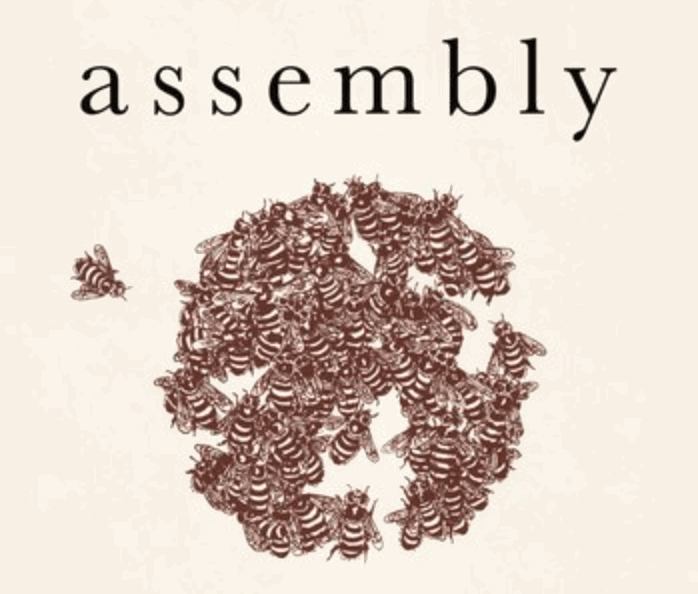Alternative Editorial: A Winning Strategy
This is an editorial from our Alternative Weekly Newsletter (sign up here, and previous newsletters here) which begins to pull together the many strands of socio-political change reported in our Daily Alternative blogs and give some shape to the emerging politics of the future.
* * *
How many times have you been invited to a political event where the party representative (an MP or other) explains the official overview for delivering a good future for the country - and then invites you to devise some methods to help them deliver it?
This familiar mechanism leaves “strategy" (the long view) in the hands of an elite - with the consequent “tactics” (the local actions that serve strategy) executed by the citizens. And given the narrow social basis of most political parties - their membership being only 2% of the population - those citizens might even themselves only be a tiny amount.
When The Alternative UK talks about the digital and information revolution that began ten years ago, it is primarily one that turns that mechanism (strategy from the elites, tactics for the masses) on its head.
The constant flow of socio-political initiatives we are describing in our Daily Alternative blog are evidence that more and more citizens – working together in groups and networks - are becoming strategists themselves. They are taking control of their own futures, in the face of national- and international-level failure to bring about results in the face of multiple crises.
This week we reported on the International Campaign for the Abolition of Nuclear Weapons (ICAN), facilitating global civil society’s strategy to make these weapons of mass destruction illegal. Another blog showed the island of Orkney’s strategy for becoming self-sufficient in energy. Localism, municipalism and networkism are all grassroots strategies for more collective autonomy, but they are also changing the destiny of our nations and planet as they pursue them.
Democracy is, after all, a project in its infancy. Having a vote every five years, in a system (at least in the UK) which largely revolves around the two main parties, gives citizens only a minimal sense of shared purpose. MPs' connections to their constituency promises those communities a voice - but their representatives get quickly caught up in all the deadening routines of the parliamentary establishment.
The more we think of democracy as a something we co-create, the more it becomes meaningful, and the more we will want to participate. Shifting the responsibility for strategy to the citizens – not ticking boxes, but engaging local and global governance in ever more diverse ways – would be a 21st C response to the moment we are in.
And it won’t mean that we will all be obliged to sit in council meetings, voting on the same issues that politics has chosen to focus on until now. When citizens bring their own ideas of what their community is, and what it needs to flourish, politics – essentially the conversation and activity around governance – could become unrecognisable.
Participatory budgeting is one thing. But what about communities deciding what they are going to do with their time in the face of automation, with their collective belonging or alienation, with their creative resources – or how they want to address the ‘feeling’ in their streets? People, rather than political/business cartels, becoming the creators of value? Isn’t that next-stage democracy?
Sitting in an academic hall last night listening to Michael Hardt talk about Assembly - his latest book with Antonio Negri - was an experience of being caught right in the act of that transition. Hardt described in beautiful detail the shift from industrial to socially produced values – including his own appreciation of how hospice workers helped his parents to die peacefully. But he found it hard, as did most of his politically active audience, to see the new politics arising from it.
Leadership, in particular, was heavily contested. Flatter organisations like Occupy have propelled many into thinking leadership is unnecessary, even as they ask why such movements have not led to lasting change. Hardt’s efforts to describe more subtle, facilitatory forms of leadership landed only sporadically with the audience. But in many other areas than politics, leadership has begun to move into a more post-egoic, service oriented structure.
It reminded me of how much political discourse is the struggle to harness social development - meaning everything that happens outside the political bubble.
Can we begin to imagine what The Alternative UK, as a politics reflecting this shift, might look like in practice? How would political leaders of the future fare if their actions - making speeches, dispensing resources, - were accepted as largely tactical, ways of serving the bigger picture, primarily directed by the strategic intelligence of cities, regions and even movements (what Hardt and Negri call “the multitude”)?
Watching Alternativet in Denmark elicits both joy and sympathy. As a party committed to up-ending the pyramid of traditional political power, they’ve had plenty of struggles. In particular, trying to crowd-source policy - in the face of media demands for ready-made manifestos - is hard. But they continue to be popular for trying.
We want leaders who embody the change they wish to see - open, in process, responsive. And maybe it’s ironic that charisma - soft power - is a good tool to help them stay visible as they point towards a different future.
Even so, they must have the humility to listen more than they instruct. Tactical leaders must allow people and organisations to manage themselves, as they direct resources towards them and ‘hold the space’ for cultural change. Watch Niko Grunsfeld walk that line in his quest to become a Mayor of Copenhagen next month. If Niko is elected, it will become even harder – but possibly, as party leader Uffe Elbaek demonstrates, more fun too.

